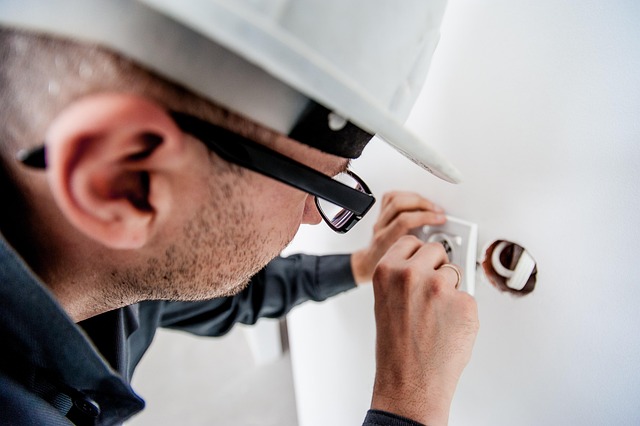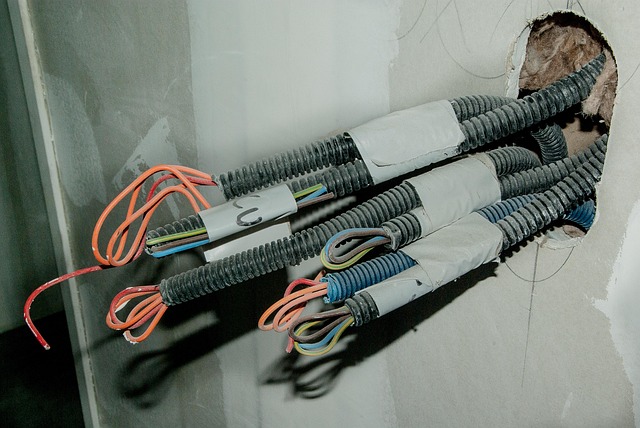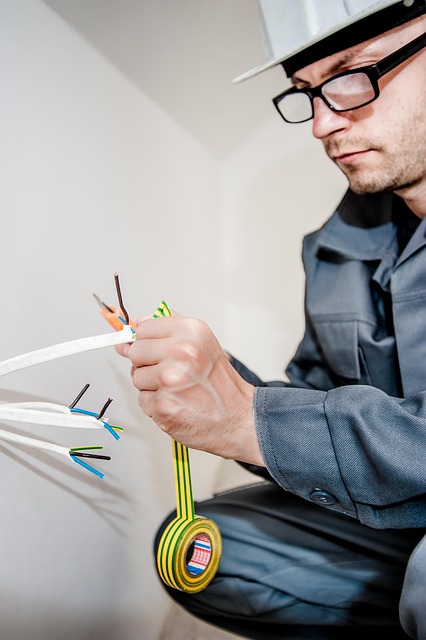Electricians play a crucial role in ensuring electrical safety across various settings, adhering to stringent regulations covering wiring, shock prevention, fire security, and equipment use. Regular training and certification maintain high-quality services aligned with legal mandates. Vital inspections by qualified electricians identify potential hazards, ensure compliance with local codes, and extend system lifespan. Proper training equips electricians to navigate complex codes, identify risks, and implement best practices, fostering trust and safety in communities. Meticulous record-keeping ensures adherence to regulations, facilitates continuous improvement, and serves as a valuable resource for future reference.
Ensuring electrical work complies with safety regulations is paramount for protecting lives and property. This article guides electricians through essential practices that guarantee adherence to standards. We explore key aspects, including understanding relevant safety regulations, conducting regular inspections, providing proper training, and maintaining detailed records. By implementing these strategies, electricians can maintain the highest safety standards, fostering public trust and ensuring their work meets the stringent requirements of the profession.
- Understanding Safety Regulations for Electricians
- Regular Inspections: A Key to Compliance
- Proper Training: Empowering Electricians
- Maintaining Records: Ensuring Continuous Adherence
Understanding Safety Regulations for Electricians

Electricians play a crucial role in ensuring the safety of electrical systems in homes, businesses, and public spaces. Understanding and adhering to safety regulations is not just a legal requirement but also a matter of life and death. These regulations cover various aspects, including proper wiring techniques, protection against electric shocks, fire safety, and the use of appropriate tools and equipment.
By staying up-to-date with the latest industry standards and local ordinances, electricians can prevent accidents, reduce risks, and create more robust and secure electrical installations. Regular training and certification programs help professionals stay informed about changes in safety protocols, ensuring they provide high-quality services that meet or exceed legal requirements. This commitment to safety is vital for maintaining peace of mind for property owners and promoting a safer environment for everyone.
Regular Inspections: A Key to Compliance

Regular inspections play a pivotal role in ensuring electrical work adheres to safety regulations. These thorough checks, conducted by qualified electricians, help identify potential hazards and defects that may have gone unnoticed. By maintaining up-to-date records of these inspections, property owners and managers can demonstrate their commitment to compliance with local codes and standards.
Such inspections cover a wide range of aspects, from the condition of electrical panels and wiring to the functionality of safety devices like circuit breakers and smoke detectors. Regular maintenance not only safeguards against electrical fires and shocks but also extends the lifespan of your electrical systems by preventing premature wear and tear. It’s a proactive approach that shows due diligence and prioritizes the well-being of occupants, making it an indispensable practice for any responsible property owner or manager.
Proper Training: Empowering Electricians

Proper training is the cornerstone of ensuring electrical work adheres to safety regulations. Well-trained electricians are equipped with the knowledge and skills necessary to navigate complex codes, identify potential hazards, and implement best practices. This isn’t just about understanding the technical aspects of wiring and circuitry; it encompasses safety protocols, equipment use, and risk assessment. By investing in comprehensive training programs, electrical contractors ensure their workforce stays up-to-date on industry standards and can confidently deliver safe, reliable electrical services.
Empowering electricians through proper training goes beyond individual protection. It also safeguards the broader community. Trained professionals are better equipped to prevent accidents, electrical fires, and other hazards that can arise from shoddy or unsanctioned work. Ultimately, a trained electrician’s expertise fosters trust and peace of mind for homeowners and businesses alike, knowing their electrical systems are in capable hands.
Maintaining Records: Ensuring Continuous Adherence

Maintaining thorough records is an integral part of a electrician’s job, as it ensures continuous adherence to safety regulations. Every electrical project should be meticulously documented, from initial assessments and planning to final inspections. This includes details like work scope, materials used, safety protocols implemented, and any potential hazards identified and mitigated. Well-kept records serve as a powerful tool for both compliance and future reference, allowing electricians to quickly access past projects’ information when needed for ongoing or similar future works.
Regular record-keeping also facilitates continuous improvement. By reviewing historical data, professionals can identify recurring issues, refine work processes, and stay up-to-date with industry standards. It’s a proactive approach that goes beyond mere compliance, fostering a culture of safety and excellence within the electrical contracting realm.
Ensuring all electrical work adheres to safety regulations is paramount for any qualified electrician. By understanding and complying with relevant standards, maintaining regular inspections, investing in proper training, and meticulously keeping records, electricians can guarantee safe installations that meet industry requirements. These practices not only protect the public but also enhance their professional reputation as they navigate the dynamic landscape of electrical work.
